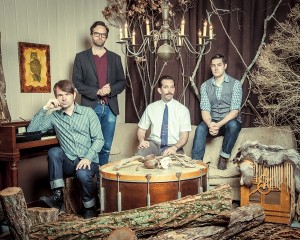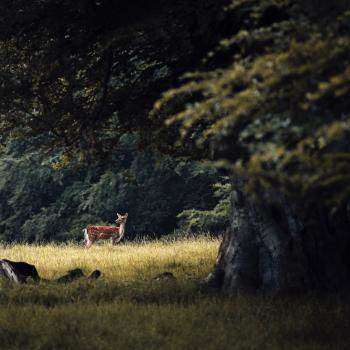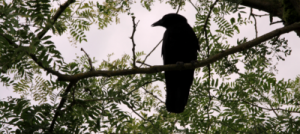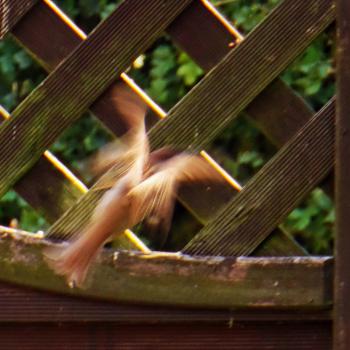 Guest post by Angela Doll Carlson
Guest post by Angela Doll Carlson
Over the last twenty years of his musical career with Jars of Clay, guitarist Stephen Mason has seen shifts in the landscape of Christian rock as well as those that have taken place with the rise of social media. Mason and his band-mates have been pioneers in the music scene, producing consistently poignant words wrapped in powerful and soul stirring melodies.
Stephen takes a few moments from his daily occupations of music making and barbering to reflect upon his career with Jars and to comment on their scrapes with the sharp edges of social media.
Angela Doll Carlson: Inland marks your first full release since The Shelter in 2010. What was happening in between these two projects?
Stephen Mason: We were working incredibly hard on writing as much as we could. Thematically, we wanted to drill down even further in our study of relationships, and the theme of mystery. We were more excited by what we didn’t know. So, there was lots of exploration.
The season of songwriting produced over forty songs that we were excited by. Every week we’d get a few, and at the moment we’d feel like we’d had enough to proceed; we’d lean in again and try a different format for writing.
Some days it was a drum loop, some days writing on piano, bass, and acoustic, and other days, our lead singer sat behind the drum kit and we played as a proper garage band.
ADC: Long Fall back to Earth in 2009 felt like a remarkably vulnerable record. There are echoes of this perhaps in all of your work but Inland feels like something of a departure from this. There’s some growth here, some new courage. Does that feel accurate to you?
SM: I think we felt like Long Fall was incredibly vulnerable—much of the reason it was couched in “synthier” sounds was that the lyrics themselves were so heavy. Inland seemed a logical next step for us—we have consistently found inspiration in different stylistic approaches, from record to record, so it was appropriate to see what we could discover. What we arrived at was a bit earthier, and “live” sounding. When there was a choice, we really relied on fewer instruments when possible.
ADC: I was struck by this verse in the song, “Human Race” on Inland:
World without end, are you ending?
Labeled a friend you’re unfriending
Disposable me, pose-able you
Any position we want to do
Another song you forget by the ending
Plastic we don’t know we’re spending
Is this a social media nod and if so, has the rise of social media impacted your creative process?
SM: It’s certainly a nod to our cultural experiences of late. Part of our story has been exploring the trivial nature of what drives much of our culture. We need a hero, a villain, and a constantly updating opiate.
The conversations happening on social mediums certainly informed that specific lyric, too. We’ve found those outlets to completely destroy any diversity in community. No one knows how to disagree well.
ADC: And how has the rise of social media impacted your relationship with your listeners?
SM: Social mediums have given us more access to our listeners, and also given our listeners more access to us. On some levels this is really wonderful. We’ve experienced lots of encouraging exchanges with people who have been significantly moved by a record, a song, work we’ve done with Blood:Water Mission and the like.
It has also allowed for a constant policing of a fluctuating, subjective religious moral standard that is defined by the evangelical wing of Christendom. We’ve experienced lots of people posting comments saying that because we’ve asked certain questions of faith and culture, they can no longer listen to us.
It’s essentially a free opportunity to project onto us what they don’t want to wrestle with themselves. That’s a sad truth.
Much of the time, we affirm their right not to listen to us, and encourage them to keep asking good questions that encourage their posture towards lifelong learning and growing, not just affirming what they believe they already know.
ADC: I always think that the Internet has a short attention span but a long memory. If that’s true, what do you want to be enduring in these hard conversations that take place online?
SM: I think that we’d hope to be seen as respectful of others, especially in disagreement- encouraging and honoring of any true dialogue, willing to ask the next question of all who remain in the unknown, quick to acknowledge the humanity that unities all of us and the grace that keeps us there, fully present.
AD: You have a new pass time of barbering. Is that the right term for your latest endeavor as The Handsomizer?
SM: Yes! I’m almost finished my schooling to become a Master Barber. It’s been a wonderful adventure. We all operate in a liminal space, and the question always before me is: “What plows will I choose to put my hand to in the time I am given?” The Handsomizer has been another wonderful opportunity to feature the conversations and artistic pursuit that I long for in life.
ADC: Barbering seems so outside of the work you’ve been doing as a musician. What drew you to it?
SM: I think what drew me to it was the opportunity of a new challenge, another artistic pursuit, and the diversity required in the arts. With the significant changes of the music business over the years, it’s been good to have other things to enjoy and find provision through.
ADC: What are your hopes for Jars of Clay now that you’ve moved inland so to speak?
SM: I imagine Jars of Clay will continue to write and record music. We have been through a lot in twenty years, and the gift of that is to be treasured. Our best songs may still be ahead of us—we will continue on the path and see what we encounter next.
Angela Doll Carlson is a poet and essayist whose work has appeared most recently in Burnside Writer’s Collective, St. Katherine Review, Rock and Sling, “Good Letters,” Ruminate Magazine Blog and Art House America. Her first book, Nearly Orthodox: On Being a Modern Woman in an Ancient Tradition is due out from Ancient Faith Press in July 2014.











